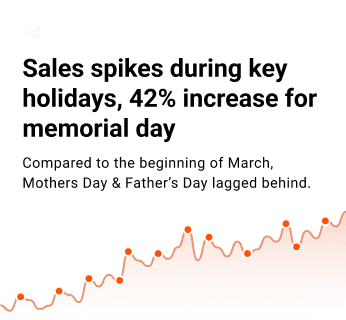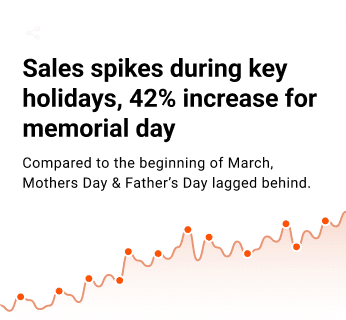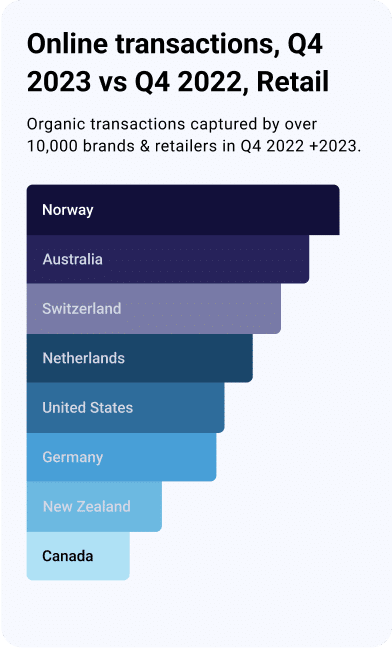The promise of privacy has always been critical between consumers and the marketers and media owners they have relationships with, but the ‘way’ it is ensured between all parties continues to evolve. The expectation on this promise is only growing. May 25th marks the third anniversary of the General Data Protection Regulation (GDPR)’s implementation in Europe, and this milestone begs the question — how far has consumer privacy come?
GDPR opened up industry-wide conversations and education around privacy as well as sparked similar regulations in the US, with the introduction of the California Consumer Privacy Act (CCPA) and most recently, Virginia’s Consumer Data Protection Act (CDPA). And since Google announced the forthcoming deprecation of third-party cookies, privacy has moved beyond its historical audience of lawyers, authorities, and courts to being front and center on the minds of marketers and media owners.
To continue privacy discussions, we asked several of our clients in Europe to share insights on how they’ve adapted to a more privacy-protected future. Here’s what they had to say:
1. Pay-TV provider, Sky Deutschland, prioritizes consumer privacy
For Sky Deutschland (Germany), nothing is more important than their customers. That’s why they adhere to strict privacy guidelines and data protection regulations. Sky’s Vice President of Digital Channels, Norbert Pellkofer, says Sky “wants to ensure [their] policies are consumer-driven” even if this means their “marketing potential is decreasing.”
Pellkofer elaborates, “Our customers decide themselves what degree of personalization they are going to receive. Therefore, privacy is given ‘by design’.” His only concern is that those who opt out of sharing their data may not yet be aware of the connection between opting in and user experience.
But Pellkofer is hopeful for the future, sharing that he’s “optimistic that all the players involved understand the value of data protection and will choose to implement this out of choice.” He goes on to say that “In an ideal world, the customer receives good service and the business avoids unnecessary touchpoints. Hopefully, as an industry we can foster better informed conversations on both sides” about data ethics and data use — and their significance.
2. Premier Swedish shopping comparison engine Prisjakt takes a privacy-first approach
Prisjakt helps consumers find the right product from the right retailer at the right price. For their privacy strategy, a representative from Prisjakt explains they’re “more aware of what privacy and data protection means for [their] clients and [they] try to put it first when [they] start new projects or make any changes.”
And their approach to preserving users’ privacy has increased alignment between their different departments in recent years. In this collaborative spirit, they hope for “more customization for users and increased ease of use when it comes to how [they] want to, or don’t want to be tracked.” They ultimately hope that “people can select how they want to be tracked (or not at all), so the need for ad blockers becomes unnecessary.” This would require that consumers understand the value exchange of every interaction with a brand and recognize the importance of opting in.
3. Leading online marketing agency SYZYGY Performance Marketing of Germany helps clients navigate data protection and consent management
Privacy regulations, as well as identity changes, aren’t the simplest paths to navigate. That’s why online marketing agency SYZYGY Performance Marketing of Germany helps their clients balance “data protection and [their] goal of working with data as an online marketing agency.”
SYZYGY also helps clients understand emerging identity approaches to meet their marketing goals in privacy-safe ways. Managing Director Matthias Weth elaborates, “Tracking without consent no longer exists— alternative methods will be in demand, such as server-side tracking, customer data platforms, machine learning, etc.” He believes that “The development in the future may well lead to an improvement in data protection and more privacy for the end user.”
When looking to the future of privacy, Matthias Weth states that, “GDPR laid the groundwork, and the European Court of Justice will probably continue to make ‘groundbreaking’ decisions” that will further the industry. Especially because the transparency of the use and the protection of data for [SYZYGY’s] customers are playing increasingly decisive roles.” As privacy regulations continue to evolve, SYZYGY will continue to support clients through any and all changes to come.
Learning from these marketing leaders
Privacy discussions and regulations will continue to be adapted as the industry moves towards identity alternatives to third-party cookies, and marketers will need to be adaptable, while focusing on several key pillars. These pillars include leveraging first-party data that is centered on consumers’ consent and control — and can only be used if consumers specifically opt in to sharing it with their preferred brands and media owners. A second pillar is privacy management to ensure that consumers have a way to efficiently manage their advertising preferences. These pillars will serve as several building blocks towards creating a better and more privacy-safe advertising ecosystem for consumers as well as all advertising parties.
Read on for insights on how Criteo is helping our clients leverage consent-based data through our First-Party Media Network, or the development of the consumer single sign-on solution, OpenPass, in collaboration with the Unified ID 2.0 industry initiative, where consumers can simply manage their advertising controls and preferences.
A word from the Criteo Privacy Team: This article does not constitute legal advice, nor is this information intended to create or rise to the level of an attorney-client relationship. You should seek professional legal advice where appropriate.























